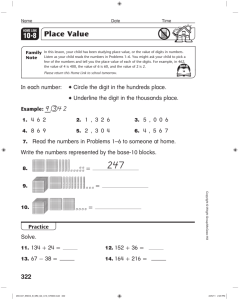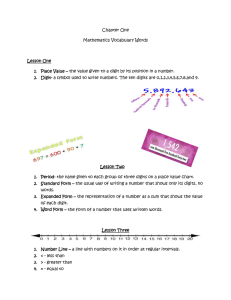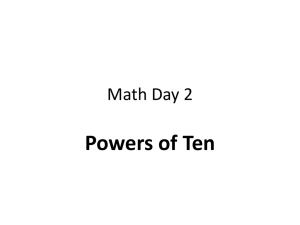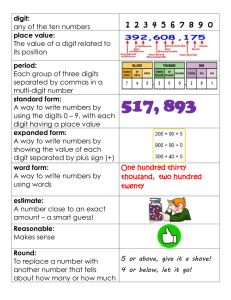4.1 - Place Value Study Guide Learning Goals
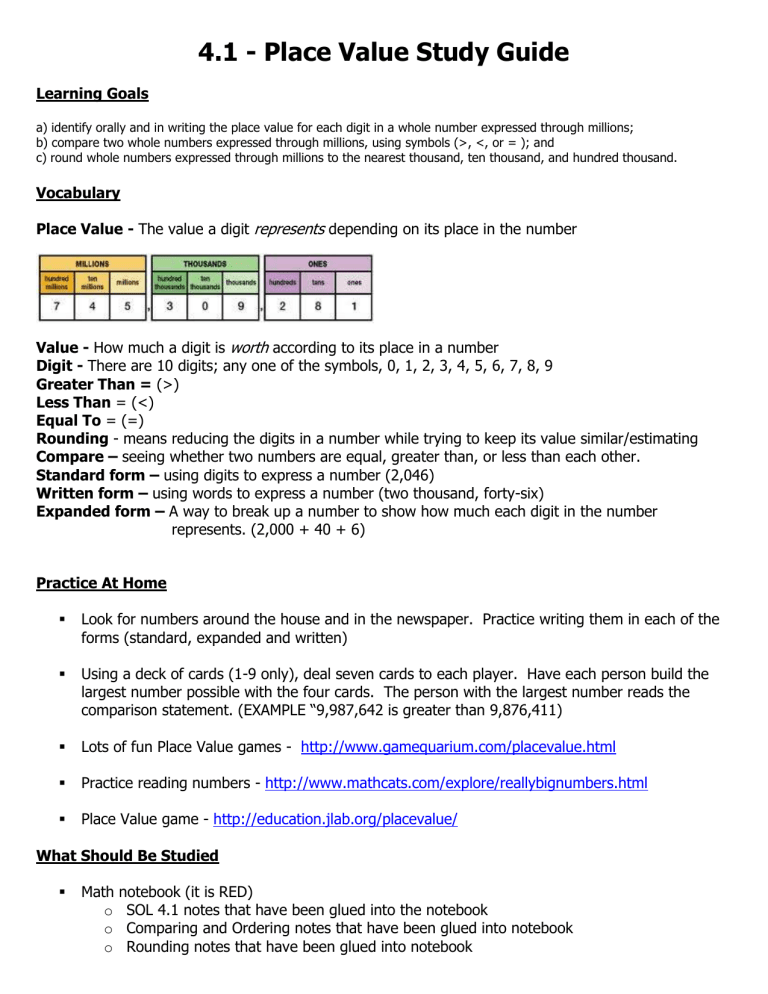
4.1 - Place Value Study Guide
Learning Goals a) identify orally and in writing the place value for each digit in a whole number expressed through millions; b) compare two whole numbers expressed through millions, using symbols (>, <, or = ); and c) round whole numbers expressed through millions to the nearest thousand, ten thousand, and hundred thousand.
Vocabulary
Place Value - The value a digit represents depending on its place in the number
Value - How much a digit is worth according to its place in a number
Digit - There are 10 digits; any one of the symbols, 0, 1, 2, 3, 4, 5, 6, 7, 8, 9
Greater Than = (>)
Less Than = (<)
Equal To = (=)
Rounding - means reducing the digits in a number while trying to keep its value similar/estimating
Compare – seeing whether two numbers are equal, greater than, or less than each other.
Standard form – using digits to express a number (2,046)
Written form – using words to express a number (two thousand, forty-six)
Expanded form – A way to break up a number to show how much each digit in the number represents. (2,000 + 40 + 6)
Practice At Home
Look for numbers around the house and in the newspaper. Practice writing them in each of the forms (standard, expanded and written)
Using a deck of cards (1-9 only), deal seven cards to each player. Have each person build the largest number possible with the four cards. The person with the largest number reads the comparison statement. (EXAMPLE “9,987,642 is greater than 9,876,411)
Lots of fun Place Value games - http://www.gamequarium.com/placevalue.html
Practice reading numbers - http://www.mathcats.com/explore/reallybignumbers.html
Place Value game - http://education.jlab.org/placevalue/
What Should Be Studied
Math notebook (it is RED) o SOL 4.1 notes that have been glued into the notebook o Comparing and Ordering notes that have been glued into notebook o Rounding notes that have been glued into notebook
